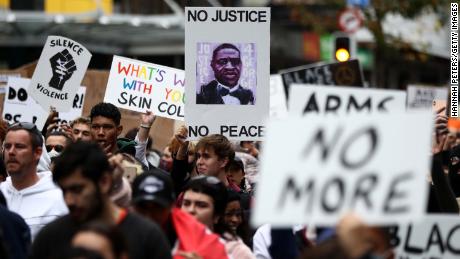
I live downtown in one of the largest cities in America.
My wife and I have watched from our home some of the protests and arrests that have occurred following the killing of George Floyd.
I’ve also observed the initial sympathy expressed by my caucasian friends be replaced by anger when the looting and violence began. I’ve heard some pundits try to explain the looting and violence, and I’ve heard others even try to justify it.
As a citizen of the kingdom of God though, I want to know what King Jesus has to say about it. And to tackle this issue from a Kingdom perspective, I think it makes sense to start with the image of God in man–not the man protesting, but the man observing the protests.
God’s image is imprinted on the soul of man, regardless of whether he is a Christian. As a result, man can be moved to mercy by the plight of the oppressed and want justice imposed on those who do the oppressing. A person need not be a Christian to feel these things. The image of God is universal.
Peaceful protests and non-resistance touch the mercy characteristic of God that is part of every person because of this image of God present in them. We see those oppressed, not fighting back, and we feel for them, sympathize them, and want to help them.
Looting and violence touches that same image of God in man but a different part of it—the justice part. And it demands that those who take what belongs to others and destroys the property of others be punished. We are disgusted and angry at them. We are drawn to the cause of the oppressed but repulsed by the actions of looters.
Is it just a coincidence then with regard to the most conspicuous example of oppression in the Bible—the Roman and Jewish persecution of the early church throughout the Roman Empire—God never ordered the church to rebel? In fact, Jesus commanded the opposite. See Matthew 5:39 (“But I say to you, do not resist an evil person; but whoever slaps you on your right cheek, turn the other to him also.”). God was not just after a change in authority but a change in the hearts of man. It took 300 years for the non-violent response of the early church to flip the Roman Empire from pagan to Christian, but when change happened it was not merely superficial.
It has become convenient recently for white people to quote Martin Luther King because of his promotion of non-violent protests, but King had it right. And if the current wave of protests are going to succeed in changing the hearts of racists, those in leadership need to look to King’s example or, even better, to the King’s example. GS

